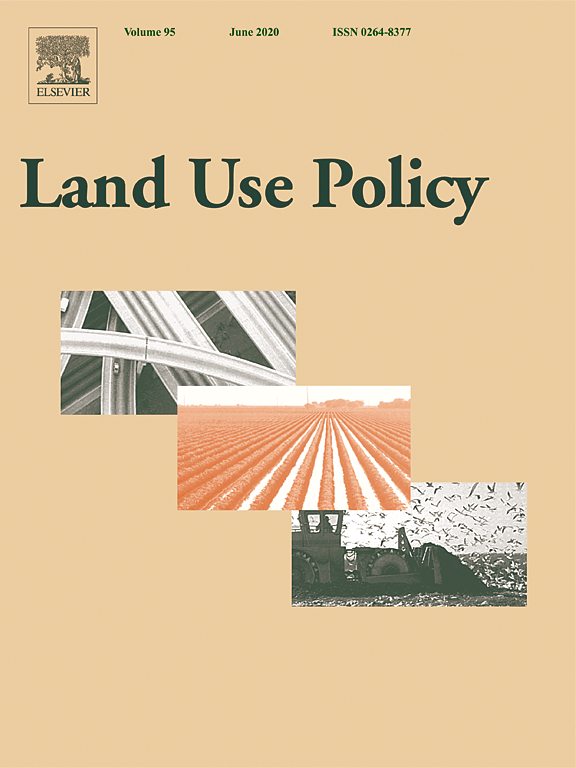Location
Land Use Policy is an international and interdisciplinary journal concerned with the social, economic, political, legal, physical and planning aspects of urban and rural land use. It provides a forum for the exchange of ideas and information from the diverse range of disciplines and interest groups which must be combined to formulate effective land use policies. The journal examines issues in geography, agriculture, forestry, irrigation, environmental conservation, housing, urban development and transport in both developed and developing countries through major refereed articles and shorter viewpoint pieces.
Land Use Policy aims to provide policy guidance to governments and planners and it is also a valuable teaching resource.
ISSN: 0264-8377
Members:
Resources
Displaying 136 - 140 of 279The colour of maize: Visions of green growth and farmers perceptions in northern Laos
The rapid expansion of hybrid maize in the uplands of northern Laos is viewed by the government as meeting policy aims related to green economic development. Yet, growing evidence of negative consequences of maize expansion are emerging.
Public funding for public goods: A post-Brexit perspective on principles for agricultural policy
In early 2019 the United Kingdom is due to leave the European Union and with it the Common Agricultural Policy. The UK Government has announced its intentions to formulate a novel agricultural policy following the principle that public funding should be restricted to the provision of public goods. However, the acceptance, interpretation and application of this principle is the subject of intense debate.
A classification to align social-ecological land systems research with policy in Europe
Both research and policy recognize land systems as fundamental to human life and activities. However, these two perspectives approach land from different ends and it can be difficult to see how studied variables contribute to broader policy goals. In this paper, we argue that there is a need to better select variables to study land systems as social-ecological systems, and to align research more with those policy goals.
Understanding environmental, health and economic activity interactions following transition of ownership in gold mining areas in Tanzania: A case of private to public
Mining is an important source of revenue for many developing countries, however, the social, environmental and economic impacts of mining are often poorly monitored. The recent transition of a gold mine in Western Tanzania—from large-scale gold mine under private, multinational ownership, to medium-scale public and national owned mine with limited life length offers a prime opportunity to understand the implications of changes in ownership and scale on the local economy and community well-being.
Credibility of institutions in Addis Ababa (Ethiopia), effects of government policies on real estate developers
Credibility is the measure of how institutions are perceived as a result of autonomous endogenous patterns of interaction and power differences. It is not the tenure security in the sense of neo-classical economics that matters but the perceived security and whether developers have the assurance to retain the fruits of their investment. What matters in performance of institutions is not their form but their functions as it is determined temporally and spatially in terms of economic efficiency, stability and growth.



